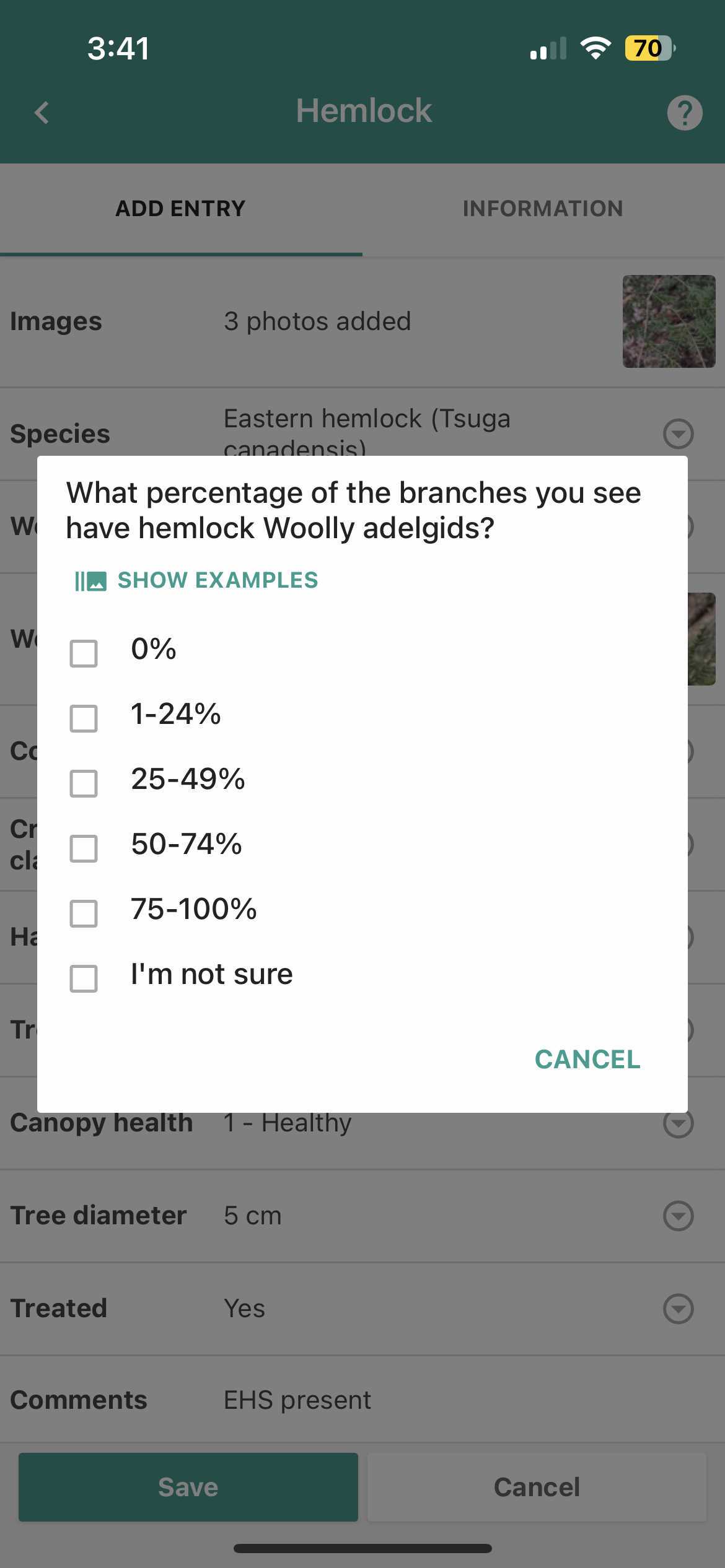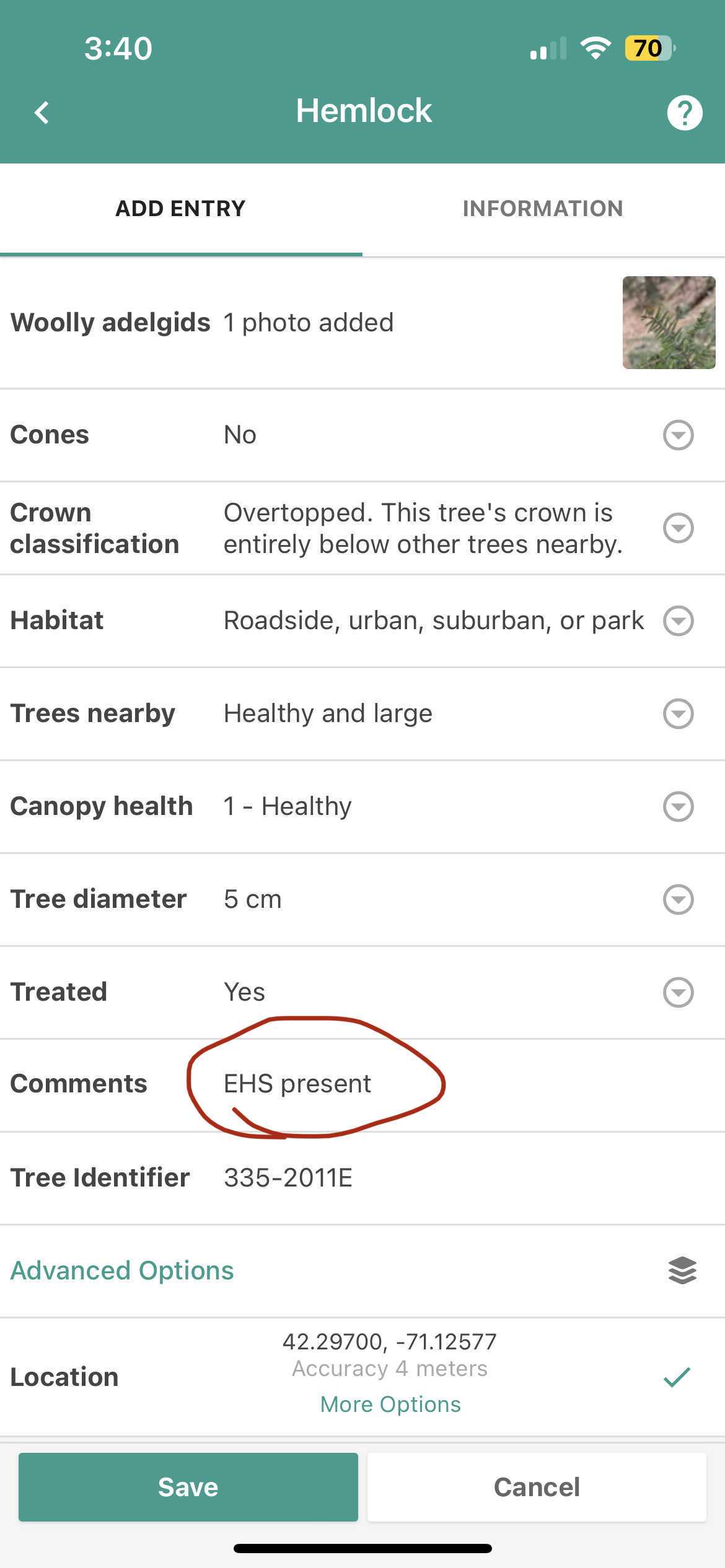Collecting needle and branch samples for terpenoid and expression analysis
Jill Wegrzyn, victoriaburton, Vidya S Vuruputoor, karlfetter
Abstract
This protocol is used by the PCG group for sampling needle and branch tissue from hemlock conifers for terpenoid analysis, as well as RNA expression analysis.
Steps
Open Treesnap (https://treesnap.org/), record the accession number on the tree and fill in notes for hemlock woolly adelgid infestation (HWA) levels (scale provided by the app).

Take at least 3 photos with TreeSnap. This includes at least one of the trees itself, one photo of the tree tag if that is present, and one photo of the collection vial with the label as well.
Geolocation will be recorded automatically but TreeSnap can also connect with a more precise external GPS device.
Note DBH in appropriate column
Note any other observation you may have- including plant condition (Excellent/Good/Poor), and placement of individual (lower canopy, full sun, etc.)
If gathering samples for pooled data, choose four random areas around the tree to collect needle and branch samples
Look for the second branch from the shoot tip (stick to the right first) and snip off 5 cm to place in 10 ml cryovial
Repeat for the other 3 directions (check appropriate column in the sheet provided). Place about 3-4 stems in each 10 ml cryovial.
Close cryovial, and using the appropriate gloves to handle liquid nitrogen (LN), place cryovial in LN dewar.
Cap vial tightly to prevent opening in the LN.
Depending on dewer configuration, you can tie tubes with string to a ‘halo’ to help keep vials from falling to the bottom. Fully submerged tubes can open.
Clean trimmers between trees with ethanol (spray bottle).
Use clipboard to manually record notes on a pre-printed spreadsheet with sample names.
After returning from the field, ensure that notes are consistent with TreeSnap entries. These entries can be amended after collection as needed.


